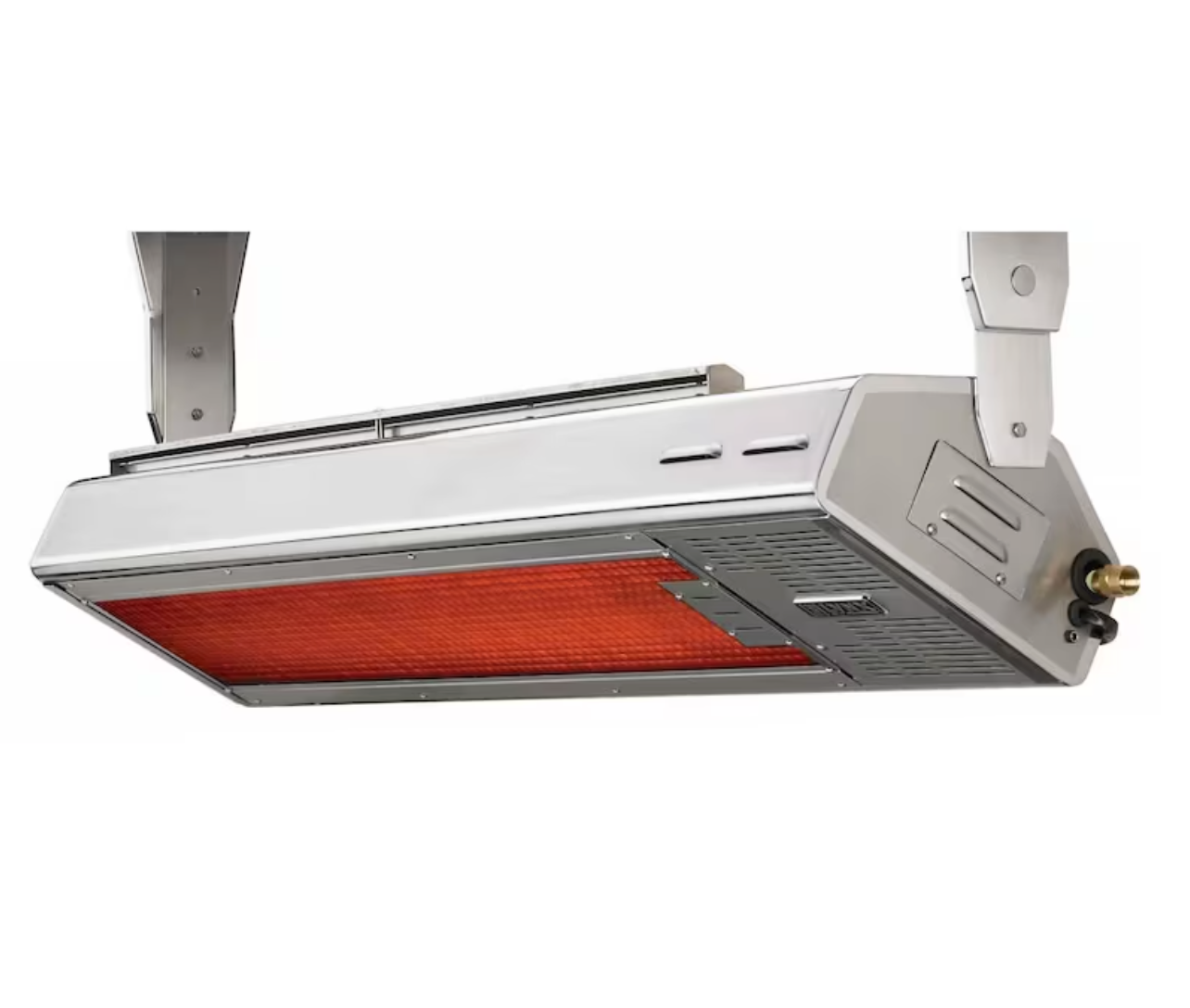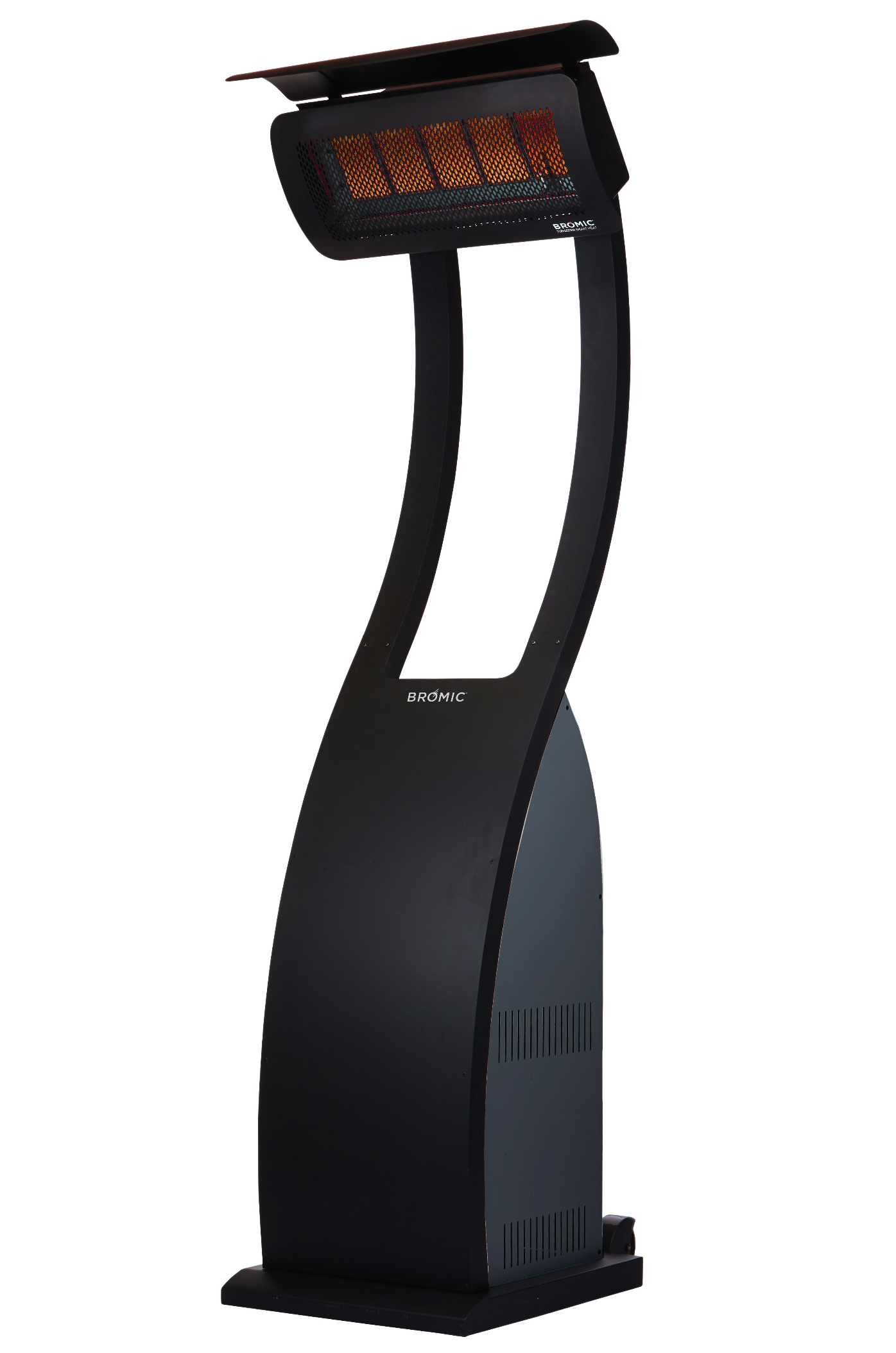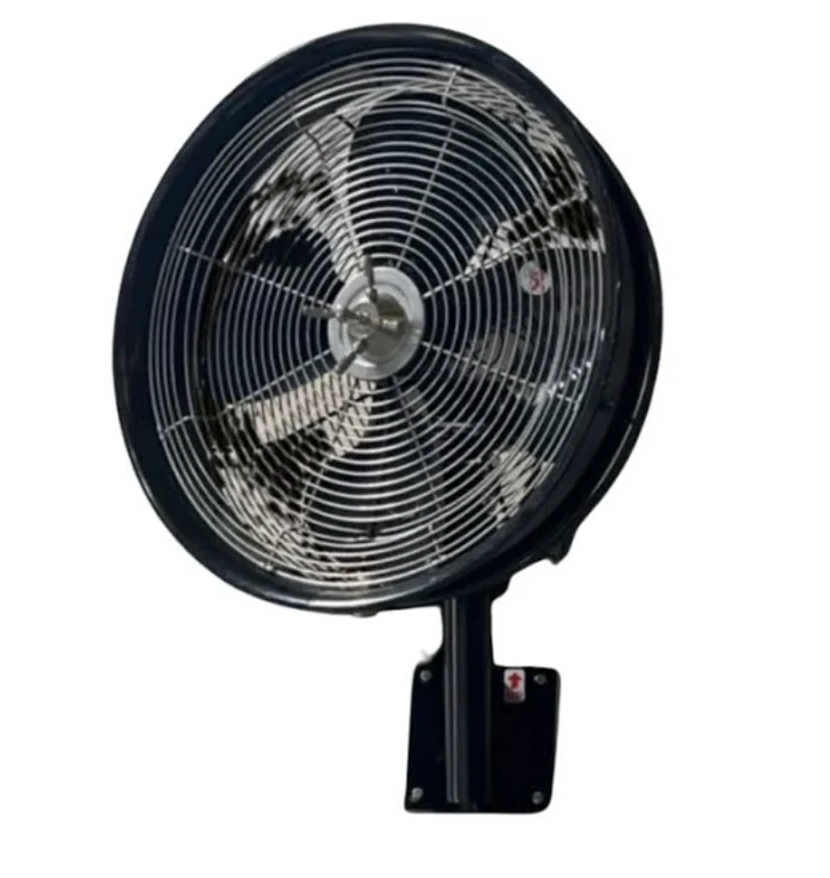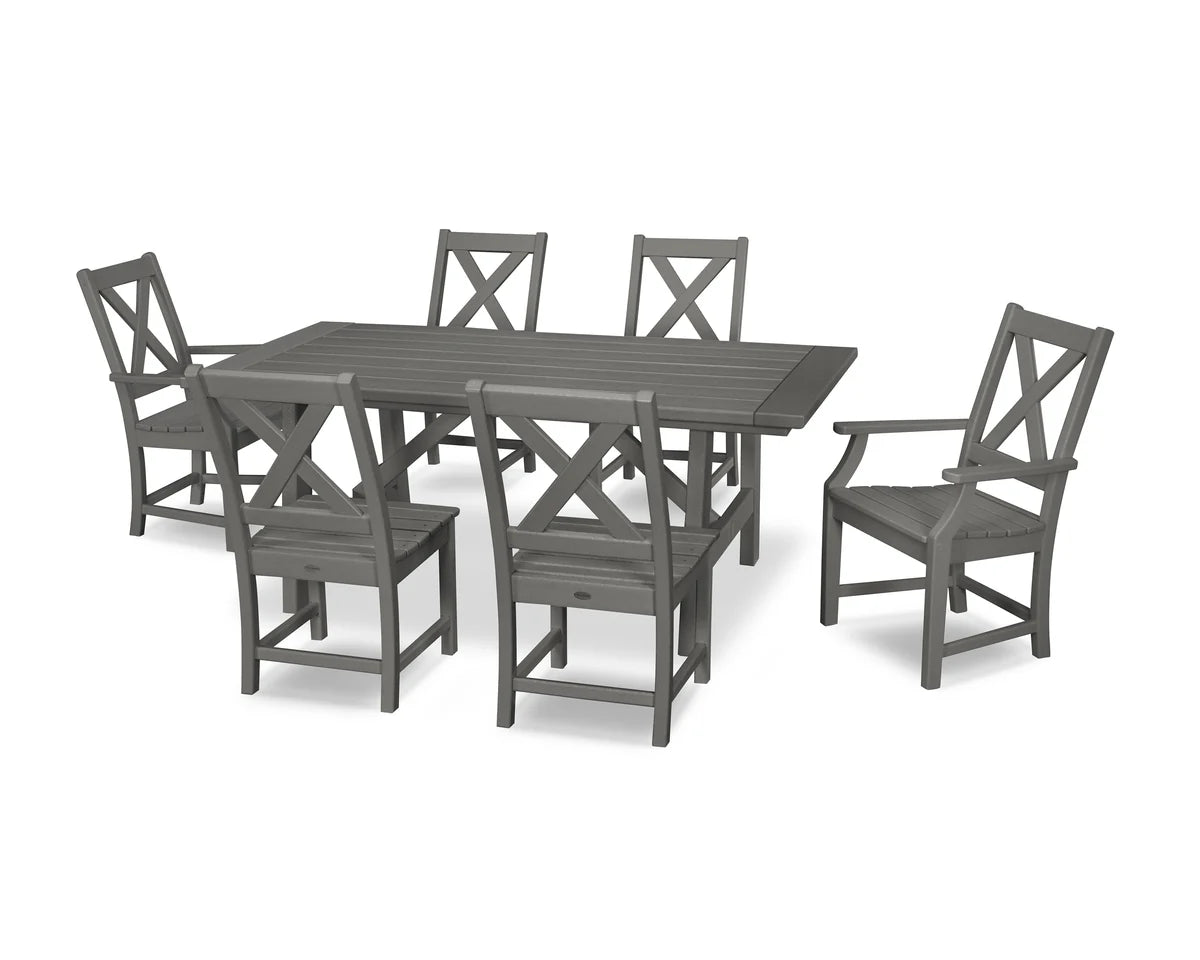Essential Maintenance Tips for Your Outdoor Kitchen: Keep Your Grill in Tip-Top Shape

If you’ve invested time and money into creating an outdoor kitchen, you want to keep it in great shape for years to come. Just like a car needs regular oil changes or your plants need watering, your grill and cooking space require routine care, too. It might seem overwhelming at first, but maintaining your grill isn't just about the cleaning—it's also about ensuring safety and enhancing your culinary adventures. By establishing some simple maintenance habits, you can enjoy countless delicious meals with friends and family. So let’s dive into practical tips that will help you keep your outdoor kitchen looking sharp and functioning smoothly!
To maintain your outdoor kitchen and grill, regularly clean grates with a mixture of vinegar and baking soda to dissolve grease, and use a wire brush after each use to remove food particles. Additionally, performing a deep clean before the cooking season and applying food-grade mineral oil on grates can help prevent rust while ensuring optimal cooking performance throughout the year.
Essential Maintenance for Long-lasting Grills
When it comes to keeping your grill in prime condition, regular maintenance is key. Many people underestimate how much routine care can extend the life of their outdoor kitchen appliances. From cleaning strategies to smart storage solutions, ensuring that your grill remains a reliable centerpiece for delicious meals starts with a solid maintenance plan. Just as you wouldn't drive a car without oil changes, neglecting your grill's upkeep can lead to inefficiencies and costly repairs down the line.
Use Tips
Before and after each grilling session, develop the habit of heating your grill on high for about 15 minutes. This simple act not only burns off residual food particles but also helps eliminate built-up grease that could later ignite unexpectedly. Consider this step as a protective measure against flare-ups that threaten both your cooking experience and safety. Many seasoned grill masters swear by this method, knowing that a clean slate makes future barbecuing not just easier but more enjoyable.
Monthly Deep Clean
At least once a month, it's wise to embark on a thorough cleaning of removable parts from your grill. Taking the time to scrub each component with warm, soapy water can work wonders in maintaining performance. Regular cleaning keeps components—such as burners and grates—free of build-up that could affect the taste of your food or even lead to equipment malfunctions over time.
|
Part |
Cleaning Method |
Frequency |
|
Grates |
Use a wire brush |
After each use |
|
Burners |
Scrub with soapy water |
Monthly |
|
Drip Trays |
Replace or clean |
Weekly |
It's helpful to refer to this table as a guide during your maintenance efforts; adhering to these recommendations can mean the difference between a grill that gleams and one that accumulates unsightly wear and tear.
Having established the fundamental routines essential for prolonging the life of your grill, we can now turn our focus toward the importance of consistent evaluations to enhance safety and efficiency during your outdoor cooking adventures.
Regularly Inspecting Parts for Safety
When it's time to fire up the grill, it’s not just about making delicious meals; it’s also about safety. Regular inspections of your outdoor kitchen components can catch small problems before they escalate into larger, potentially hazardous issues. Think of it as a safety net that prevents mishaps from ruining your backyard barbecues or family gatherings.
One of the most important areas to begin your inspection routine is with the hoses. Over time, gas hoses can develop cracks or leaks, which can lead to dangerous situations. It’s smart to mix up a soapy water solution and apply it to the hoses; if you see bubbles forming, you'll know you’ve got a leak that needs immediate attention. Remember that a faulty hose isn't just an inconvenience—it can pose serious safety risks.
Next, shift your focus to the burners. They’re the heart of your cooking equipment, so checking them regularly should be part of your routine. You want to ensure that they are free from clogging debris like food particles and grease buildup. While inspecting, wear safety gloves and carefully remove any blockages you might find. A clean burner promotes even heat distribution while grilling, leading to better cooking outcomes. Plus, it enhances the overall lifespan of your grill.
As important as hoses and burners are, the ignition system is another critical element not to overlook. An ineffective ignition can stand between you and your perfectly grilled steak.
Testing the igniters before each use is vital; a functioning ignition system ensures peace of mind. If you encounter a sluggish spark or no spark at all during testing, replace any faulty components immediately. Whether it's batteries in electronic ignitions or manual starters, maintaining this part means you won’t be left grappling with unreliable equipment mid-cookout.
To sum up, here are key areas to inspect:
- Hoses: Use a soapy water mixture to check for leaks.
- Burners: Clear any blockages while protecting your hands.
- Ignition System: Ensure consistent sparks by replacing faulty parts promptly.
As seasons change, so should your maintenance focus—be ready for fresh challenges in ensuring a smooth grilling experience!
Seasonal Maintenance Tasks
The changing seasons bring different challenges to your outdoor kitchen, and being proactive can prevent unnecessary wear and tear on your grill. Each season presents an opportunity to protect your investment from potential damage and prepare for the cooking months ahead.
Winterization
If you live in a colder climate, winterizing your grill is crucial. Draining any residual water prevents freezing damage and keeps internal components from corroding. When temperatures drop, water left sitting in hoses or components can expand and cause parts to crack, damaging the integrity of your grill. It’s wise to store your grill in a garage or shed where it will be shielded from snow and ice. Having a dedicated space for storage makes a huge difference; it keeps everything organized and saves you from sifting through winter gear for your grill.
For instance, the Napoleon Prestige Pro requires careful winterization to avoid rusting and freezing mechanics. Taking the time to ensure that every part is protected can save you significant effort come springtime.
As winter fades away, spring cleaning becomes crucial for preparing your grill for the grilling season.
Spring Cleaning
Spring cleaning is more than just a chore; it's an essential ritual that sets the tone for all those summer barbeques ahead. Begin by inspecting all components of your grill and meticulously cleaning off any dust or debris accumulated over the winter months. This not only helps ensure safety but also enhances performance. After all, no one wants to face a malfunctioning grill when they're mid-way through marinating their ribs.
To refresh your grill, consider using products from BBQ Outfitters. They have a variety of specialized cleaners and tools tailored specifically for outdoor kitchens, which allows you to perform preventive care efficiently.
Additionally, during this inspection, focus on functional elements like gas connections, burner operability, and ignition systems. A quick test run before inviting friends over can help you identify any issues early on—nobody enjoys the taste of disappointment with undercooked food because of an overlooked issue.
Incorporating these seasonal tasks into your routine not only maintains quality but also enhances your grilling experience. Proper care now lays the groundwork for how well your grill will perform against the elements in the future.
Protecting Your Grill from Weather Damage
Weather can be relentless, especially when it comes to outdoor cooking equipment like grills. Sun, rain, snow, and wind each have their way of slowly degrading your grill over time if you're not careful. A simple and effective solution to limit damage is investing in a quality grill cover. Think of it like putting on a raincoat before stepping out into a storm; it simply makes sense. High-quality, weather-resistant covers are designed to withstand diverse weather conditions and provide critical shielding for your grill.
As temperatures fluctuate and storms roll through, never underestimate the importance of a good covering. Not only does it protect the exterior finish of your grill, preventing rust and corrosion, but it also keeps stray debris from clogging vents and burner tubes. It’s about ensuring that every part of the grill stays functional.
Ideal Cover Selection
When selecting a cover, look for features such as waterproof material that can repel rain and heavy snowfall while also being UV-resistant to shield against sun damage. A high-quality cover can block up to 98% of those harmful rays that fade colors and degrade surfaces over time. Additionally, consider a snug fit tailored specifically to your grill model, as loose covers can flap in the wind and potentially cause scratches or dislodging of components.
By prioritizing proper protection, you set the stage for an efficient cooking experience. Now, let’s explore essential tools and products that will further enhance your cleaning efforts.
Tools and Products for Effective Cleaning
The right tools make all the difference when it comes to keeping your grill and outdoor kitchen in top shape. Think of cleaning as an art form; with the right brushes, solutions, and techniques, you can maintain cleanliness while prolonging the life of your appliances and surfaces.
For instance, grill brushes are a staple in every grill master's toolkit. Depending on your grill type, you might opt for brass, nylon, or stainless steel bristles. Brass brushes are gentle enough for porcelain-coated grates while still tough on grease. Meanwhile, stainless steel is perfect for cast iron grates that can handle a bit more scrubbing.
Alongside these brushes, scraper pads become invaluable for maintaining grates without scratching them up. A light touch here can go a long way as you work toward preserving the shiny finish of your equipment. Whether you're barreling through post-bbq cleanup or doing routine maintenance before the season, these tools will streamline your efforts substantially.
When it comes to specialty cleaners, consider something like Bar Keepers Friend. This product is highly regarded for its ability to tackle stainless steel surfaces effectively. It easily dissolves rust spots and stubborn stains that accumulate over time—ensuring that not only will your grill look great, but it will also perform at its best.
Now let's consider the surfaces themselves. For concrete countertops, refrain from using harsh chemicals or power-washing as they can damage finishes. Instead, a simple mixture of dish soap and warm water applied with a soft sponge works wonders without leaving scratches behind or degrading aesthetics. Other materials have their own requirements too; granite loves gentle care and should be kept smooth with coasters under glasses to avoid pesky water rings.
Microfiber cloths are another must-have tool. Not only do they help with drying surfaces after washing, but their absorbent property makes them ideal for catching dust and debris without scratching anything. Likewise, having a garden hose with a spray nozzle is useful to rinse off any leftover cleaning solution—you want that surface pristine after all your hard work!
With all these handy tools at your disposal, you'll be equipped to keep your outdoor kitchen looking sharp and functioning well for years to come. However, despite your best efforts in cleaning, deterioration can occur; it's essential to recognize when professional assistance is necessary for optimal performance.
Signs Your Grill Needs Professional Attention
As grill enthusiasts, we all cherish those moments spent cooking outdoors, but even the most reliable grills have their limits. If you're unsure whether your grill needs a little extra love or if it’s time to call in the professionals, keep an eye on a few indicators.
Uneven heating across your cooking surface is one of the first warning signs. If certain areas are sizzling while others are barely warming up, it may suggest underlying issues with your burners or gas supply that need addressing. Imagine trying to cook burgers on a hot day only to discover half are perfectly seared while the others are still cold—frustrating, isn’t it?
Another important indicator is if you find yourself battling excessive smoke while cooking. While some smoke is normal when using charcoal or certain wood chips, an unusual amount can signal grease buildup on vital components or malfunctioning parts. This issue not only affects the flavor of your food but can also pose safety risks.
If you notice visible rust or corrosion, that’s another red flag indicating it’s time for a professional inspection. Rust can compromise both functionality and aesthetics. The integrity of your grill depends on maintaining those metal surfaces free from decay. Think of it like detecting early signs of aging in a beloved piece of furniture—you wouldn’t let it deteriorate without trying to fix it first.
When assessing your grill’s health, pay attention to how easily it ignites. If you're struggling with ignition or find that it takes much longer than usual to light, this could mean there's an issue with your ignition system that requires expert evaluation.
Let's not ignore those pesky flare-ups! Frequent flare-ups during cooking not only disturb the grilling process but might also signal grease management trouble or burner problems needing immediate attention.
Should you encounter any of these symptoms, don't delay in seeking help from a reputable service provider. Use resources like BBQ Outfitters to find authorized service centers experienced with your specific grill model. They’ll have the tools and knowledge necessary to get you back to enjoying those delicious barbecues faster without sacrificing safety.
Taking action at the right time can extend the life of your grill and enhance every cooking experience. Regular check-ups and prompt repairs are keys to maintaining a welcoming and functional outdoor kitchen space.
Frequently Asked Questions
How often should routine maintenance be performed on an outdoor kitchen grill?
Routine maintenance on an outdoor kitchen grill should be performed at least every six months to ensure optimal performance and longevity. According to industry experts, regular upkeep can extend the life of your grill by up to 50%, significantly enhancing your outdoor cooking experience. This maintenance includes cleaning grates, checking gas connections, and inspecting for wear and tear, which not only keeps your grill functioning efficiently but also promotes food safety by preventing flare-ups caused by grease buildup.
What specific cleaning techniques should be applied to different types of grills (gas, charcoal, electric) to maintain them effectively?
For gas grills, use a wire brush to scrape the grates and wash the burners with a soapy water solution; this prevents buildup that can cause flare-ups. Charcoal grills benefit from removing ashes after each use and cleaning grates with a grill brush to ensure proper airflow. Electric grills should be unplugged and wiped down with a damp cloth while avoiding submerging the heating element in water. Regular maintenance can extend the life of your grill by 50%, ensuring safe cooking conditions and better flavor in your meals!
How does proper storage influence the longevity and performance of an outdoor kitchen grill?
Proper storage is crucial for prolonging the lifespan and enhancing the performance of an outdoor kitchen grill. When stored correctly, away from harsh weather conditions and moisture, a grill can avoid rust and corrosion, which are common culprits of degradation. Studies have shown that grills stored under protective covers last up to 50% longer than those left exposed. Additionally, proper storage prevents damage to components such as burners and igniters, ensuring consistent cooking performance every time you fire it up.
What should I do if my grill won’t ignite?
If your grill won’t ignite, start by checking the gas supply to ensure that there’s enough fuel in the tank or that the propane line is connected properly. Inspect the igniter switch and connections for any signs of wear or damage; sometimes, simply cleaning these parts can resolve ignition issues. Additionally, check the burners for blockages caused by grease or debris; a thorough cleaning can often restore functionality. If these steps do not resolve the issue, consulting your grill's manual or contacting a professional may be necessary.
How do I maintain the countertops in my outdoor kitchen?
Maintaining countertops in your outdoor kitchen involves regular cleaning and periodic sealing to preserve their appearance and durability. Use mild detergents mixed with warm water to wipe down surfaces after each use, avoiding harsh chemicals that could damage finishes or materials like granite or quartz. For stone countertops, applying a sealant every six months can help protect against stains and moisture infiltration. Always dry surfaces thoroughly after cleaning to prevent water spots or mold growth, ensuring they remain both functional and aesthetically pleasing.
Are there any specific cleaning products recommended for outdoor kitchens?
When it comes to cleaning products for outdoor kitchens, it's best to use non-abrasive cleaners specifically formulated for various materials like stainless steel, stone, or tile found in these spaces. For grills, look for degreasers that effectively cut through grease without damaging surfaces; many brands offer eco-friendly options as well. Avoid harsh chemicals that could corrode finishes or leave harmful residues behind; instead, opt for mild detergents mixed with warm water for general cleaning tasks across all surfaces in your outdoor kitchen.
What parts of the grill need regular inspection?
Regular inspection of your outdoor grill is crucial for maintaining its performance and longevity. Key components to focus on include the burners, which should be checked for any signs of rust or blockages that could affect gas flow; the ignition system, ensuring it sparks reliably without delay; and the grill grates, which need to be inspected for wear and tear or buildup of grease that can impact cooking quality. Additionally, pay attention to the propane tank or natural gas line connections for leaks, checking hoses for cracks or brittleness. Lastly, don’t overlook the drip tray and grease management system, as these areas can accumulate residue and require regular cleaning to prevent flare-ups and ensure safety during grilling sessions.
Where can I dispose of charcoal ash safely?
To dispose of charcoal ash safely, it's essential to first ensure that the ashes are completely cool and free from any remaining embers, which can take up to 48 hours after grilling. Once cooled, you can place the ash in a metal container with a tight-fitting lid to prevent any potential fire hazards. Many local waste management facilities accept charcoal ash as part of their yard waste or general refuse collection, so check with your municipality for specific guidelines. Alternatively, you can use the ash in your garden as a natural fertilizer or pest repellent, as it contains beneficial minerals like potassium and calcium. Just be sure to sprinkle it sparingly and mix it into the soil to avoid overwhelming your plants.
Your Grill’s Best Friend: BBQ Outfitters
Incorporating these essential maintenance tips into your routine will not only keep your outdoor kitchen and grill in pristine condition but also ensure every cookout is a success. When it comes to finding the best products and expert advice for maintaining or upgrading your outdoor cooking space, BBQ Outfitters is your trusted partner. From premium grills and accessories to top-notch cleaning supplies, BBQ Outfitters provides everything you need to keep your outdoor kitchen in tip-top shape. Visit our website today and let us help you create and maintain the perfect grilling experience!











